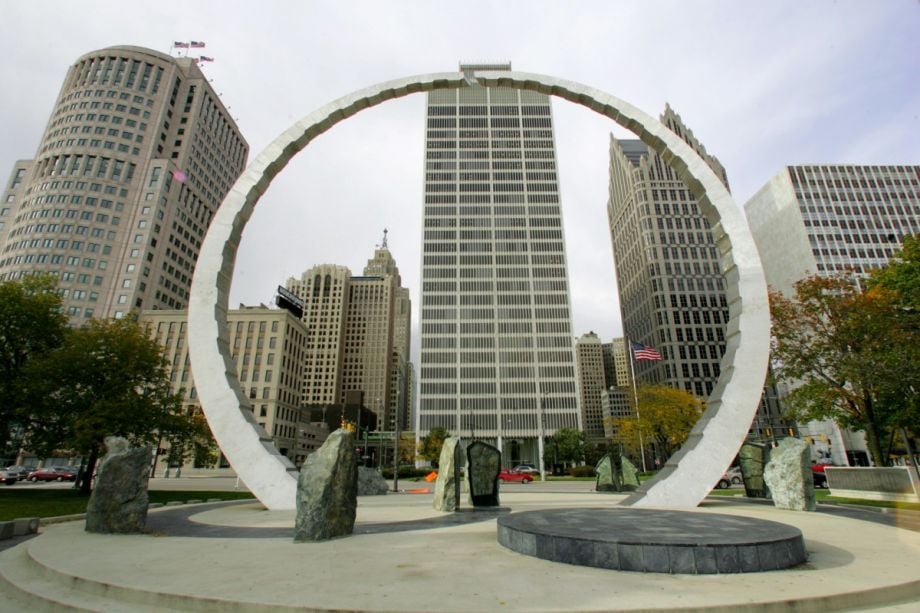Self-sacrifice is a funny thing. It can be manipulated and exploited, lured out of us on the pretense of common good, and then used against us to benefit others. It can also be noble: the height of the human spirit, creating a better future for us all, in fact and in inspiring example. Detroit’s current and future retirees no doubt had to navigate these poles as they decided how they would cast their ballot for one of most pivotal votes happening anywhere in the country this year — a vote that didn’t happen in an ordinary election, but that has extraordinary stakes.
Detroit retirees voted “yes” to having their monthly pension checks cut, it was reported by The Detroit News. The self-sacrifice was a crucial step for the viability of the “grand bargain” — the multi-faceted deal to resolve the city’s municipal bankruptcy in a way that softens the blow to key members of the community.
The “yes” vote by both groups of pensioners — police and fire retirees, as well as civilian retirees — opens the door to an infusion of cash by public and private partners. Numerous foundations, unions and the Detroit Institute of Arts promised $466 million in 20-year pledges as their part of the deal. The state of Michigan is throwing in $195 million as its contribution. Collectively, the grand bargain is meant to reduce the cuts to pensioners, who otherwise would be treated as any other creditor in bankruptcy court. At the same time, it protects the irreplaceable artwork in the DIA from being sold as a city asset. As part of the terms of the deal, if approved by the bankruptcy court, the DIA would be spun off from the city and be run by an independent board. The pension cuts also make it possible for more than $7 billion in debt and liabilities to be re-invested in the city’s operations and services.
Police and fire pensioners approved the cuts by an astonishing 82 percent, while civilian pensioners approved it by 73 percent. Eighty-eight percent of retirees owed health care benefits voted to have them slashed. Had the more than 32,000 current and future pension recipients voted “no,” the city would likely be compelled to institute much more draconian cuts to pensions. It also would have felled the grand bargain, potentially making the DIA vulnerable for poaching. Under these lesser cuts, public safety retirees will have their annual pension inflation adjustments reduced from 2.25 percent to 1 percent. Civilian retirees will lose 4.5 percent from their monthly checks, with their annual cost-of-living adjustments cut. Retirees also were asked to approve a plan to shred their health care benefits by about 90 percent.
“Our reaction [when first hearing about the proposed deal] is that we’d fight it at all costs,” said Shirley Lightsey, president of the Detroit Retired City Employees Association, at the June press conference where Michigan Gov. Rick Snyder signed the bills that determined the state’s contribution to the city. “Even now, we’re not happy to give up our promised benefits and our legal rights.” But, she added, “there is no way to respond except with a ‘yes’ vote.”
The stakes of the grand bargain were heavy — and a great burden to put on the shoulders of retirees who, through no fault of their own, have found themselves in the heat of the city’s fiscal fire. The expectation for “yes” came to seem like a civic duty. As Lightsey noted, to vote “no” and effectively give up half a billion dollars, “we’d have no sympathy from anyone.” Speaking to her colleagues who were yet to cast their ballots, she said, “Think about your decision. You’ll have to live with this for the rest of your life.”
The final vote was supposed to be filed in federal court on July 21st, almost exactly a year after the city first filed for the largest municipal bankruptcy in U.S. history, though the final tallies appeared to be delayed for logistical reasons. Nonetheless, the president of the Retired Detroit Police and Fire Fighters Association circulated a newsletter on July 21st that said the final numbers cleared the bar, according to The Detroit News. The same newsletter also apologetically asked for donations to help offset the association’s legal fees: $500,000 to date.
It is hard times. It’s true that the “yes” vote brings newfound energy to the courtroom, where a new trial begins on August 14th to determine if the city’s plan of adjustment (including the grand bargain) is fair and reasonable. If the court agrees that it is, the city expects to invest about $1.4 billion into city services over the next decade. That is powerful and heartening for a city so starved for basic care.
When people speak about the revival narrative of Detroit, as it enters the final act in the largest municipal bankruptcy in U.S. history, they are right. But it should not be forgotten that, to make it through the tunnel, we asked tens of thousands of people to give us a portion of their well-being in their elderly years. And they gave it to us.
The Equity Factor is made possible with the support of the Surdna Foundation.

Anna Clark is a journalist in Detroit. Her writing has appeared in Elle Magazine, the New York Times, Politico, the Columbia Journalism Review, Next City and other publications. Anna edited A Detroit Anthology, a Michigan Notable Book. She has been a Fulbright fellow in Nairobi, Kenya and a Knight-Wallace journalism fellow at the University of Michigan. She is also the author of THE POISONED CITY: Flint’s Water and the American Urban Tragedy, published by Metropolitan Books in 2018.
Follow Anna .(JavaScript must be enabled to view this email address)





_600_350_80_s_c1.JPEG)











